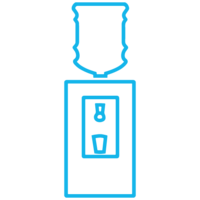IMPORTANT UPDATE: We are now on our journey to becoming Culligan (UK) Ltd. Click here to read our FAQ’s and find out what this means for you.
Read moreRead lessResources
- New customer
0333 600 1845 - Existing customer
0333 600 1845
"The service is consistent and extremely easy to access. The team are always friendly and helpful. The delivery drivers go out of their way to make delivery as easy as possible. "
Jean, P&S Drylining (NW) Ltd
How can we help?
Why choose Waterlogic?
Wide range
Our water experts work with you to select a water cooler that fits perfectly for your office size and requirements.
Eco-friendly
Our qualified and approved engineers carry out a thorough onsite assessment to ensure your water cooler can be installed quickly and efficiently.
Servicing included
Regular filter checkups and hygiene maintenance of you mains-fed dispenser by trained technicians to keep you water in perfect condition.
Global supply
Waterlogic products are enjoyed across over 50 countries with a range of products that match a variety of needs.



